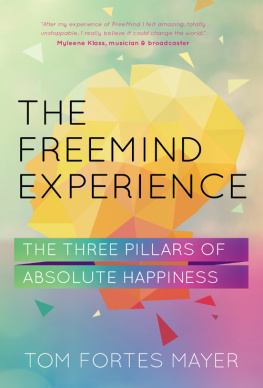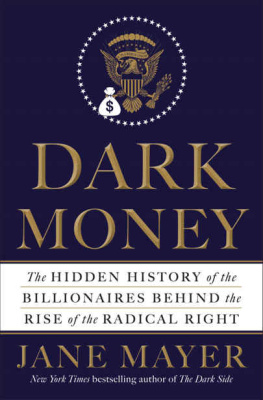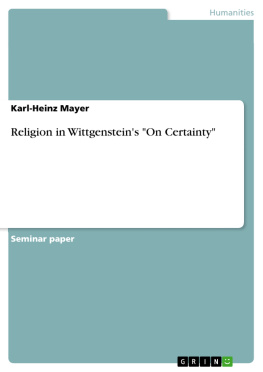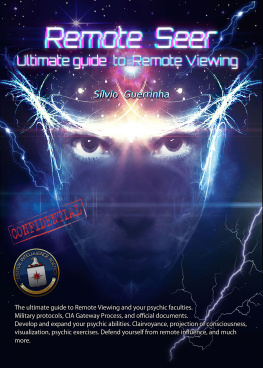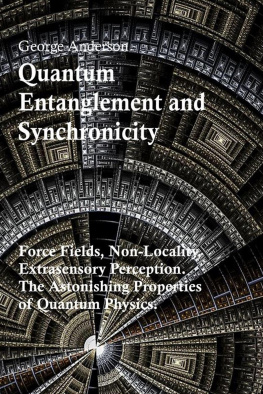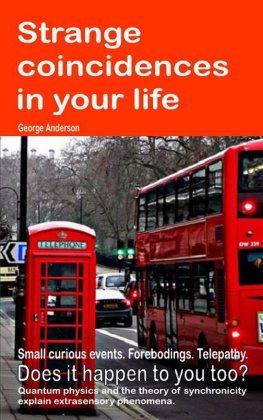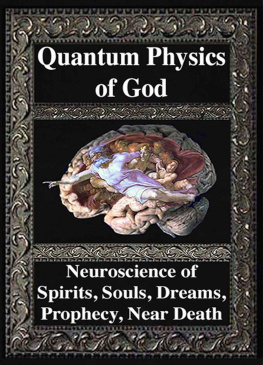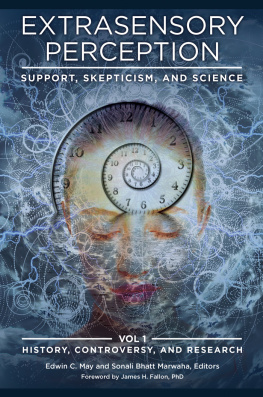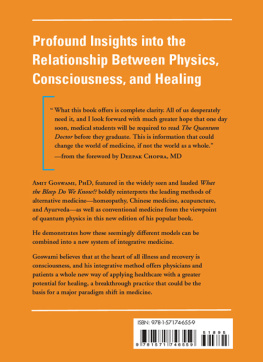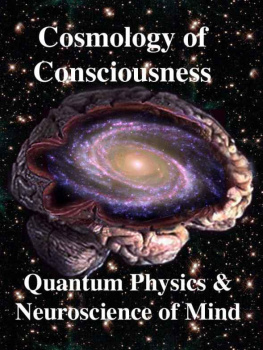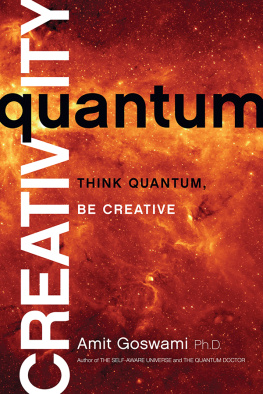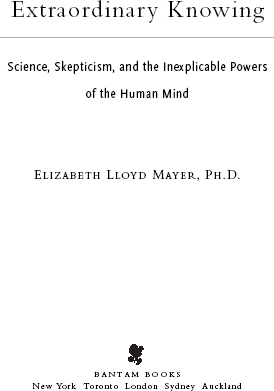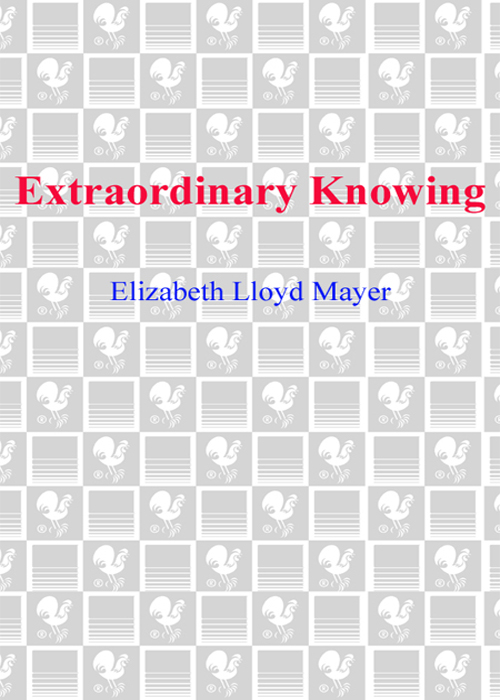
Contents
1 The Harp That Came Back
My Journey Begins
2 Going Public with Private Knowing
Breaking the Silence
3 Disavowing the Extraordinary
Personal Cost and Public Consequences
4 States of Mind
Knowing That Doesnt Feel Like Knowing
5 Intuitive Intelligence
The Art and Science of Union
6 Startingand Stoppingthe Conversation
The Strange History of Paranormal Research
7 Tossing Out Meteorites
Science, Fear, and Anxiety
8 Nighttime Eyes
Learning to Live with Paradox
9 Measuring the Power of Prayer
Is God in the Equation?
10 Listening Harder
Tuning In to Dreams and Telepathy
11 Three Seconds into the Future
The New Science of the Unconscious
12 Quantum Uncertainty
A Working Model of Reality
Epilogue: To Begin Again
The Challenge of the Extraordinary
In December 1991, my daughters harp was stolen; we got it back. But it came back in a way that irrevocably changed my familiar world of science and rational thinking. It changed the way I go about living in that world. It changed the way I perceive the world and try to make sense of it.
This book is about what unfolded as I attempted to explain what happened.
Elizabeth Lloyd Mayer
Foreword
by Freeman Dyson,
Institute for Advanced Study,
Princeton, New Jersey
This book begins with an extraordinary story about a harpone that is typical of thousands of others in which somebody knows something without having any normal way of knowing. This kind of extraordinary knowing is commonly called extrasensory perception, or ESP. Since I am a scientist, the story puts me in a difficult position. As a scientist I dont believe the story, but as a human being I want to believe it. As a scientist, I dont believe anything that is not based on solid evidence. As a scientist, I have to consider it possible that Elizabeth Mayer and Harold McCoy might have concocted the story or deluded themselves into believing it. Scientists call such stories anecdotal, meaning that they are scientifically worthless.
On the other hand, as a human being I find the story convincing. I am impressed by the fact that Elizabeth Mayer is herself a scientist and would normally be skeptical of such anecdotal evidence. She understands why the majority of scientists do not believe her story. She is eager to maintain a friendly dialogue between skeptics and believers in ESP. She feels herself in many ways closer to the skeptics. But she does not have the luxury of not believing the harp story, because it happened to her and she knows it is true. I am convinced, not by the story itself, but by the portrait that Elizabeth paints of herself as a scientist confronting a mystery that orthodox science cannot grasp.
The greater part of this book describes the history of ESP research, some of it based on anecdotal evidence and some based on scientific experiments. The Society for Psychical Research, with branches in England and America, has been the main collector and publisher of anecdotal evidence. The society has been active for more than a century. It has published a large number of well-documented stories in its journal and in a famous book with the title Phantasms of the Living. A phantasm of the living is an episode in which person A at a moment of extreme crisis or danger is seen by person B hundreds of miles away. The society documented these episodes with firsthand testimony from A and B, recorded as soon as possible after the events. The evidence is of very uneven quality, and all of it is anecdotal.
The scientific investigations of ESP have been pursued with dogged determination for long periods of time, initially by Joseph Rhine at Duke University, later by Harold Puthoff at Stanford Research Institute, and recently by many other groups. The history of these efforts is murky, partly because there were some accusations of cheating in Rhines laboratory, and partly because much of Puthoffs work was sponsored by the Central Intelligence Agency under conditions of secrecy. Elizabeth Mayer gives us the clearest account of ESP research that I have seen, with an excellent bibliography of relevant documents. The results of the scientific investigations were in the end disappointing. Investigators claimed to have positive and statistically significant evidence of ESP, but the positive results were always marginal, large enough to be statistically significant but not large enough to convince a skeptical critic.
There are three possible positions that one may take concerning the evidence for ESP. First, the position of orthodox scientists, who believe that ESP does not exist. Second, the position of true believers, who believe that ESP is real and can be proved to exist by scientific methods. Third, my own position, that ESP is real, as the anecdotal evidence suggests, but cannot be tested with the clumsy tools of science. These positions also imply different views concerning the proper scope of science. If one believes, as many of my scientific colleagues believe, that the scope of science is unlimited, then science can ultimately explain everything in the universe, and ESP must either be nonexistent or scientifically explainable. If one believes, as I do, that ESP exists but is scientifically untestable, one must believe that the scope of science is limited. I put forward, as a working hypothesis, that ESP is real but belongs to a mental universe that is too fluid and evanescent to fit within the rigid protocols of controlled scientific testing. I do not claim that this hypothesis is true. I claim only that it is consistent with the evidence and worthy of consideration.
I was asked to write this preface because I published in The New York Review of Books a review of a book about ESP with the title Debunked!, by Georges Charpak and Henri Broch. Elizabeth Mayer read my review and refers to it in her Chapter 12. In my review I said that ESP only occurs, according to the anecdotal evidence, when a person is experiencing intense stress and strong emotions. Under the conditions of a controlled scientific experiment, intense stress and strong emotions are excluded; the person experiences boredom rather than excitement, and so the evidence for ESP disappears. That, I wrote, is why scientific investigation of ESP fails. The experiment necessarily excludes the human emotions that make ESP possible.
After my review was published, I received a large number of angry letters in response. Orthodox scientists were angry because I said ESP might be real. True believers in ESP were angry because I said ESP could not be scientifically proved.
What I like best about Elizabeth Mayer is her eagerness, throughout this book, to maintain a friendly working dialogue between believers and skeptics. I am happy that she and I can disagree and still stay friends.
Foreword
by Carol Gilligan
I met Lisby over a story of extraordinary knowingthe one she tells in the first chapter of this book. A mutual friend who works in the theater, determined to bring us together, had set up the date and place: a caf in Harvard Square. I see her across the small wooden table, the coffee cups, packets of sugar ripped open next to her plate, her face lit, her eyes eagerly searching mine. Our friendship would hinge on this conversation.




